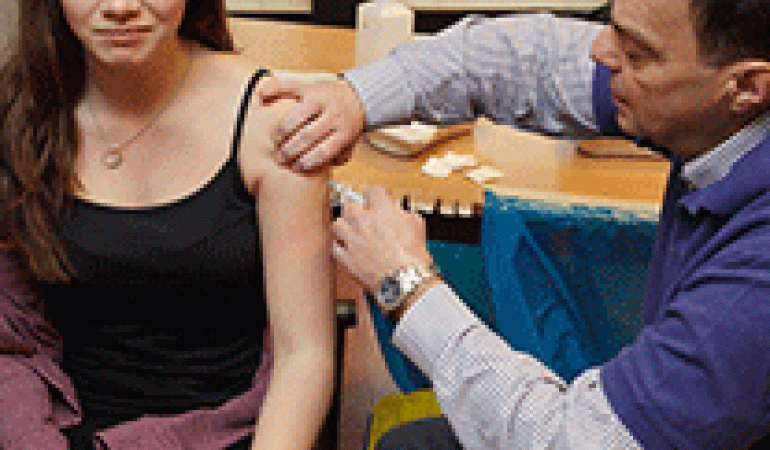
In 2014 the number of girls who were immunised against the human papilloma virus (HPV) rose. This virus can cause cervical cancer later in life. By 1 January, 60.7% of girls born in 1999 have had all three HPV injections. On comparison with the group of girls born in 1998, this is an increase of 0.8%. This gradually increasing trend has been seen from 2010 when the HPV vaccination was first included in the Dutch national vaccination programme.
The group of girls born in 1999 consisted of 99,214 girls. 60,7 percent of these girls have had all three prescribed injections. The group of girls born in 2000 consisted of 101,930 girls. Over 56 percent of these girls have had all three injections by now; however, this figure may be higher as these girls will still be able to complete the course. At the beginning of 2014, there was a change to the HPV vaccination programme from a 2+1 schedule to a 1+1 schedule. This means that 63,4 percent of girls who have been vaccinated twice or more, are now considered to be fully vaccinated.
Initial effects of the HPV vaccination programme appear to be favourable
The risk of being infected by HPV drops dramatically in girls
who have been immunised against it. This has been shown by research
done by Madelief Mollers of RIVM who defended her doctoral thesis
on 23 April at the VU University Medical Center, Amsterdam. Due to
the long period of time between contracting HPV and the development
of cervical cancer, the effect the vaccination will have on the
number of women who will develop cervical cancer will only become
apparent in the long-term. For this reason Moller’s doctoral
research targeted the early signs of cervical cancer: the
prevention of HPV infection and the presence of HPV antibodies.